Table of Contents
A dependent clause is a group of words that has a subject and a verb but cannot stand alone as a complete sentence. It needs to be connected to an independent clause to make sense.
These clauses often begin with subordinating conjunctions like “because,” “if,” or “when.” Dependent clauses help add extra information to a sentence but do not express a complete thought on their own.
What is a dependent Clause?
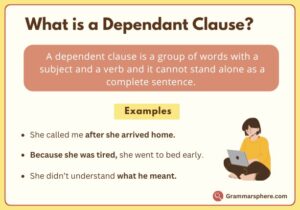
A dependent clause is a group of words that contains a subject and a verb but does not express a complete thought.
Example Sentences:
Because she was tired, she went to bed early.
He waited patiently while the rain stopped.
Types of Dependent Clause
There are three main types of dependent clauses: noun clauses, adjective clauses, and adverb clauses.
1. Noun Clause
A noun clause acts like a noun in a sentence. It can serve as the subject, object, or complement.
- What she said surprised everyone.
- I don’t know where he went.
2. Adjective Clause
An adjective clause describes a noun or pronoun in the main sentence. It usually begins with words like who, whom, whose, which, or that.
- The book that she lent me was interesting.
- I know a person who can help us.
3. Adverb Clause
An adverb clause explains when, where, why, or how something happens. It often begins with words like because, if, when, while, or since.
- I’ll call you when I arrive.
- Because he was late, he missed the bus.
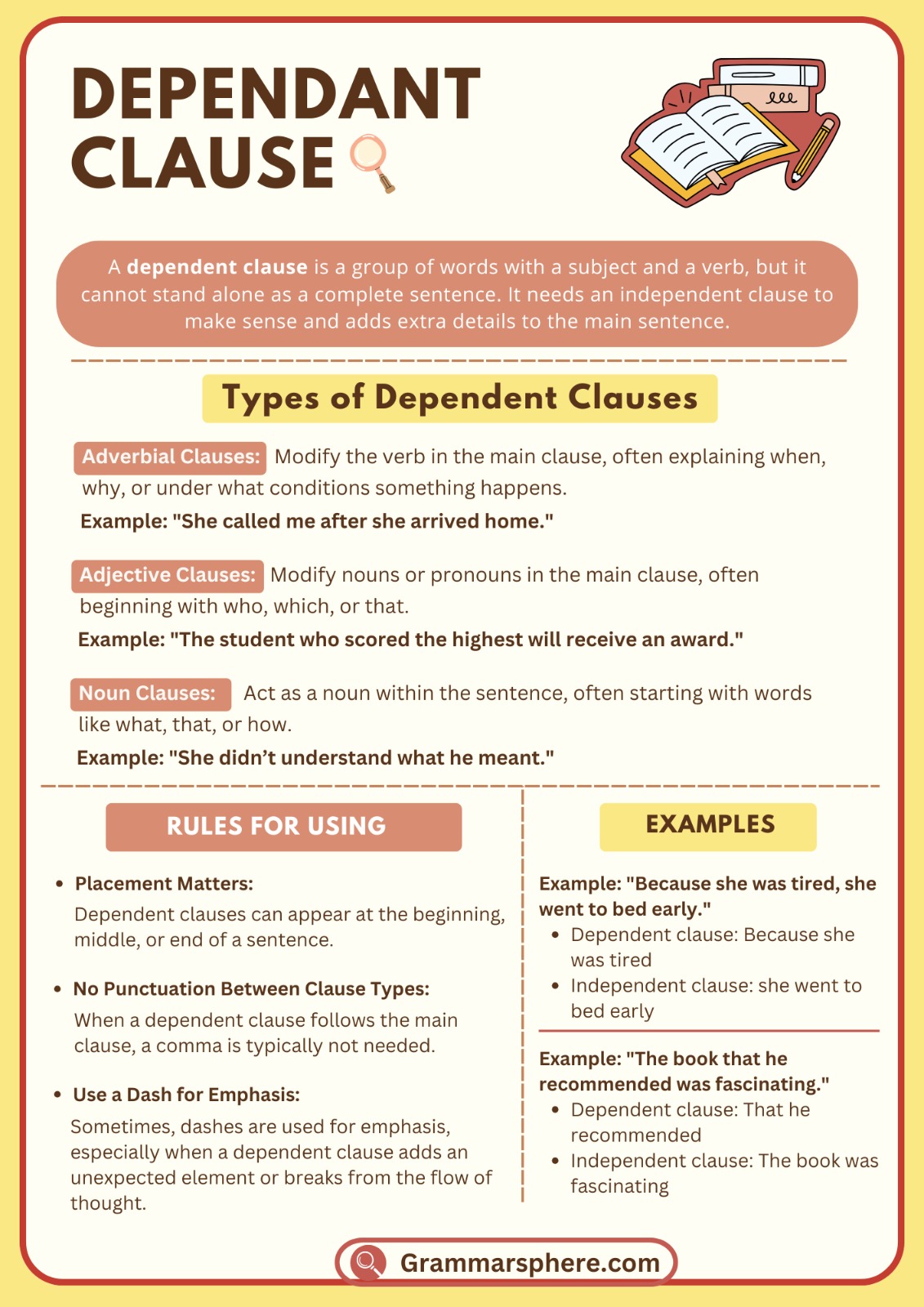
Independent vs. Dependent Clauses
Understanding the difference between independent and dependent clauses helps us build clear sentences. Both types of clauses contain a subject and a verb, but they function differently within a sentence.
Independent Clause
An independent clause expresses a complete thought and can stand alone as a sentence. It doesn’t need any additional information to make sense.
- She finished her homework.
- The sun is shining today.
Dependent Clause
A dependent clause, on the other hand, cannot stand alone because it does not express a complete thought. It needs an independent clause to form a meaningful sentence. Dependent clauses often begin with words like because, if, when, although, or since.
- When she finished her homework, she watched a movie.
- The sun is shining because the clouds cleared.
Subordinating Conjunctions & Relative Pronouns in Dependent Clauses
Subordinating Conjunctions
Subordinating conjunctions link a dependent clause to an independent clause, showing a relationship like time, cause, condition, contrast, or purpose. Common subordinating conjunctions include because, if, when, although, since, and while.
- Because it was raining, we stayed inside.
- If you study hard, you will pass the exam.
Relative Pronouns
Relative pronouns introduce adjective clauses (a type of dependent clause) that describe a noun or pronoun in the main sentence. Common relative pronouns include who, whom, whose, which, and that.
- The book that I borrowed was very interesting.
- She met someone who shares her interests.
How do dependent clauses connect to independent clauses?
Dependent clauses join independent clauses using conjunctions or relative pronouns, adding details and meaning to a sentence.
1. Using Conjunctions
Subordinating conjunctions (e.g., because, if, although) connect a dependent clause to an independent clause, showing relationships like cause, time, or condition.
- Because I was tired, I went to bed early. (Shows reason)
- If it rains tomorrow, we will stay indoors. (Shows condition)
2. Using Relative Pronouns
Relative pronouns (e.g., who, which, that) connect a dependent clause to a noun, adding more details.
- The book that she lent me is interesting. (Identifies the book)
- The man who helped me was very kind. (Describes the man)
Example Sentences with Dependent Clause
- When she arrived, the meeting had already started.
- He left early because he was feeling sick.
- The cake, which I baked this morning, smells delicious.
- Although it was raining, they went for a walk.
- She smiled while she was reading the letter.
- Since you’re here, let’s start the project.
- The phone rang as soon as I sat down.
- Unless you study, you might fail the test.
- He didn’t come because he was busy.
- Before the sun sets, they want to finish the work.
FAQs
What is a dependent clause and examples?
A dependent clause is a group of words with a subject and a verb but cannot stand alone as a complete sentence. It needs an independent clause to make sense.
Examples:
Because she was late, we started without her.
The book that I borrowed was interesting.
If it rains, we will stay inside.
What are 5 examples of clauses?
She enjoys reading. (Independent clause)
Because it was raining. (Dependent clause)
I will call you when I arrive. (Independent + dependent clause)
Who left the door open? (Dependent clause)
They went home after the movie ended. (Independent + dependent clause)
What are 10 examples of dependent clauses?
Because she was tired
If it rains tomorrow
When the movie ended
Although he tried his best
Since you called me
While they were sleeping
Before the sun sets
Unless you finish your work
After we had dinner
That she told me yesterday
What are Dependent Clause words?
Dependent clauses start with subordinating conjunctions or relative pronouns.
✔ Subordinating Conjunctions: because, if, when, although, since, while, before, after, unless, until.
✔ Relative Pronouns: who, whom, whose, which, that, what, whichever.
These words connect dependent clauses to independent clauses.
Dependent clause and independent clause
✔ Independent Clause: A complete sentence with a subject and verb that can stand alone.
✔ Dependent Clause: Has a subject and verb but cannot stand alone; it needs an independent clause to make sense.
Example:
Independent: I went outside.
Dependent: Because it was sunny.
Complete Sentence: I went outside because it was sunny.
You May Also Like

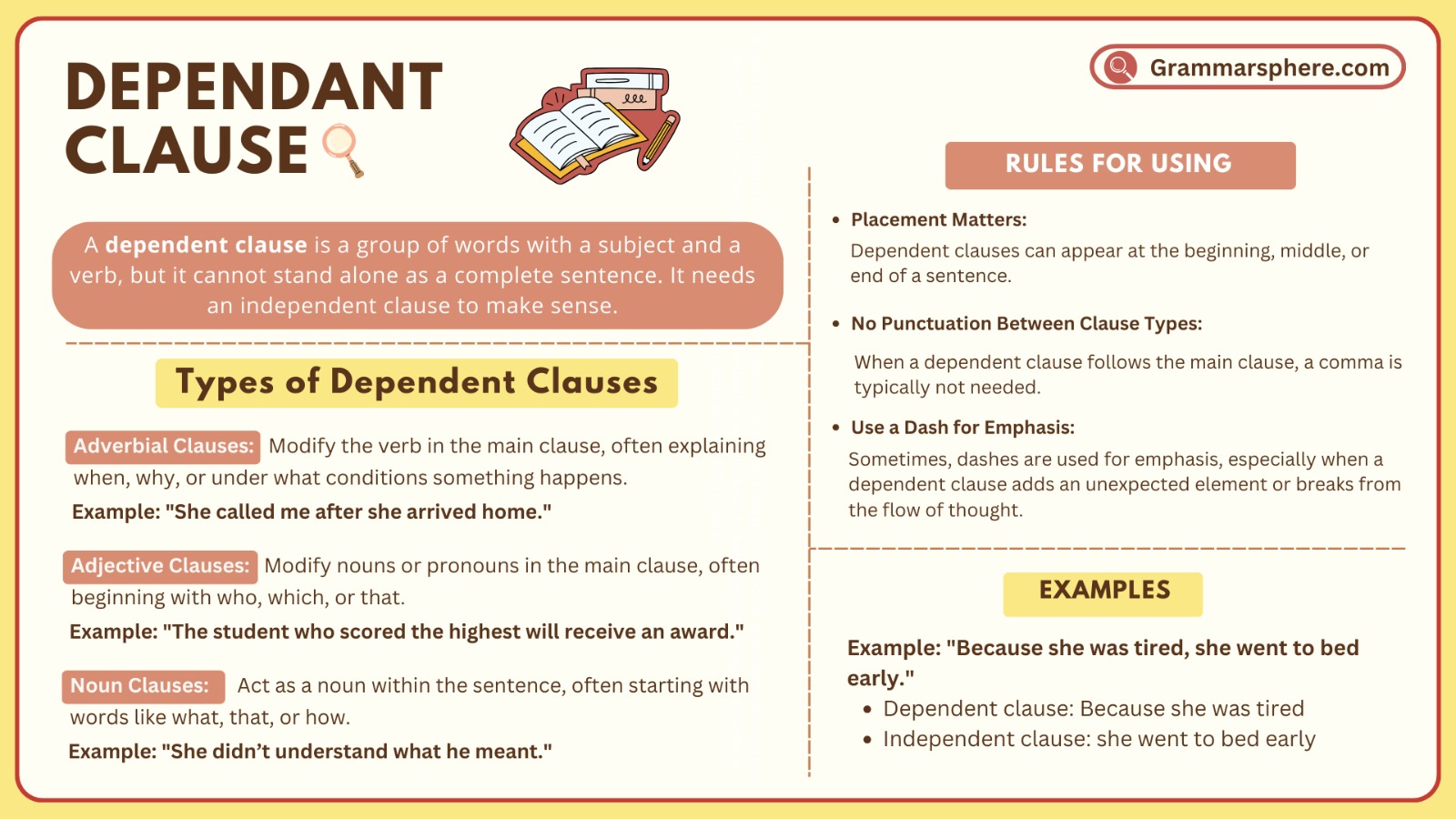
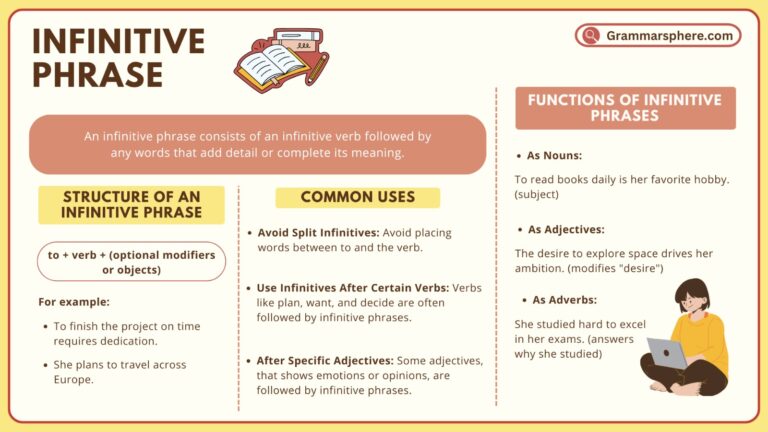
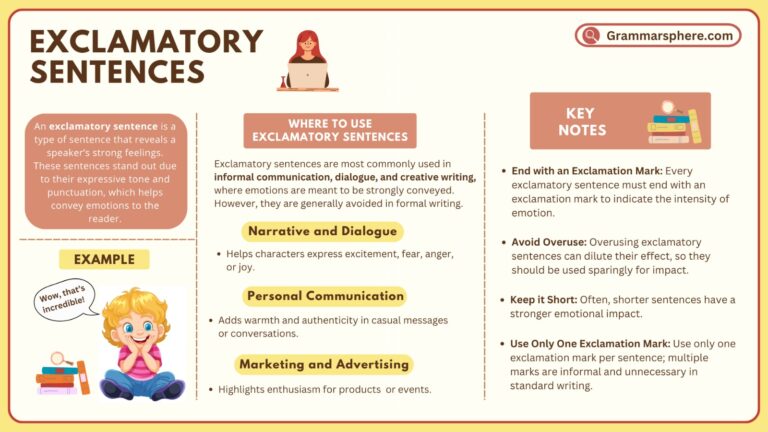
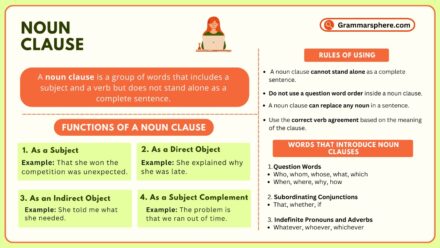
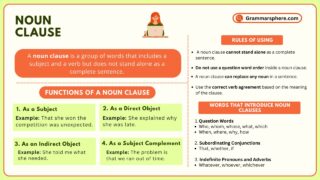
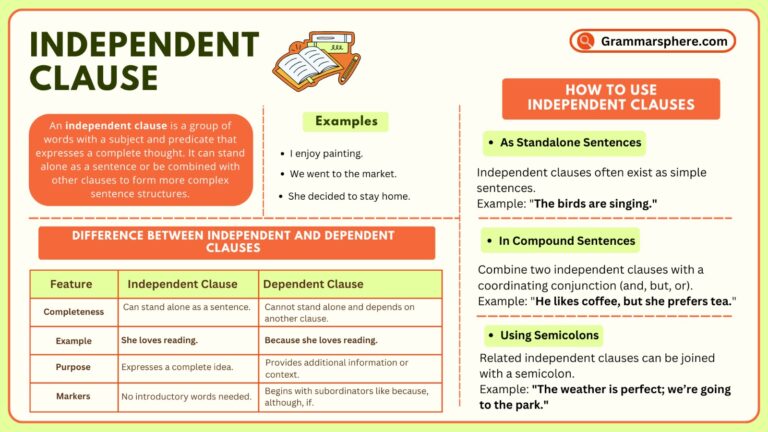
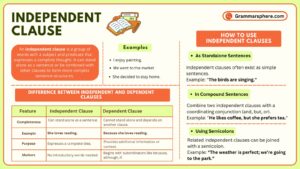
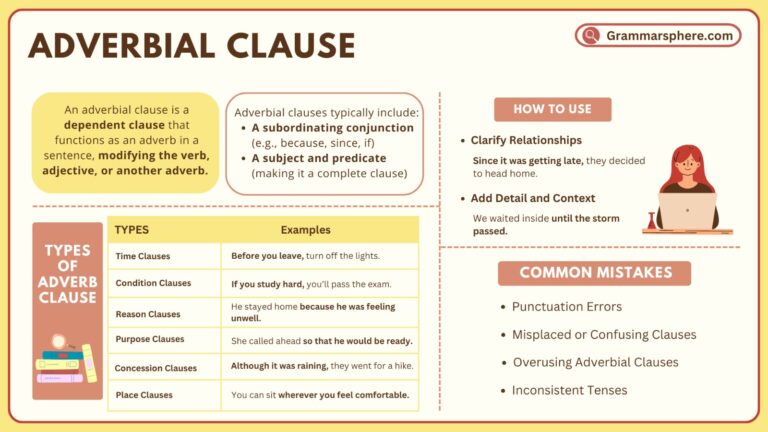
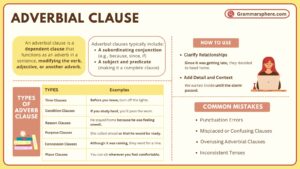
Leave a Comment